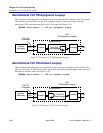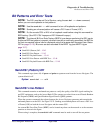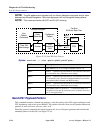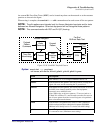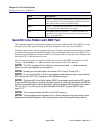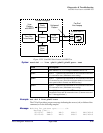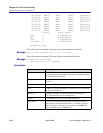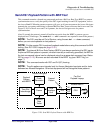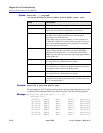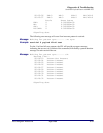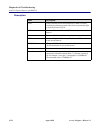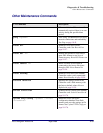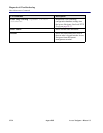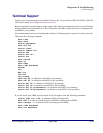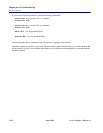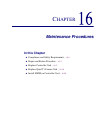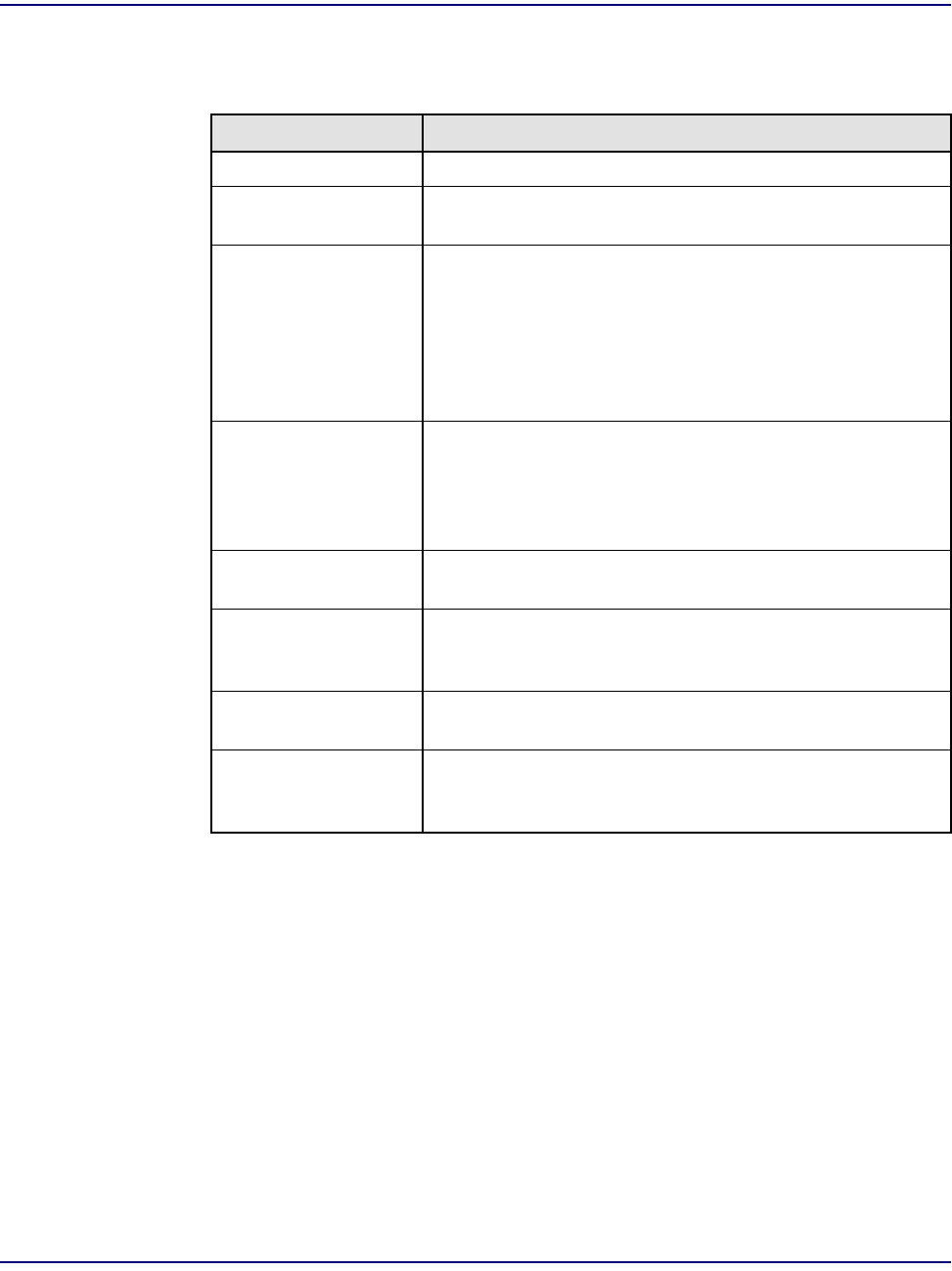
15-50 August 2003 Access Navigator - Release 1.8
Diagnostics & Troubleshooting
Send DS1 Payload Pattern with BER Test
Syntax: send ds1 <n> payload
<allones|allzeros|f1in8|p2e11|p2e15|p2e23|qrss> test
Example: send ds1 9 payload p2e15 test
For most patterns, the CLI will provide a progress message indicating the success (ok)
or failure of the command followed by the test results, as in the following samples.
Message: Waiting for pattern sync........ok.
Testing line...
08:15:47 FBE:0 BE:0 CRC:0 BPV/LCV:0
08:15:48 FBE:0 BE:0 CRC:0 BPV/LCV:0
08:15:49 FBE:0 BE:0 CRC:0 BPV/LCV:0
08:15:50 FBE:0 BE:0 CRC:0 BPV/LCV:0
08:15:51 FBE:0 BE:0 CRC:0 BPV/LCV:0
08:15:52 FBE:0 BE:0 CRC:0 BPV/LCV:0
08:15:54 FBE:0 BE:0 CRC:0 BPV/LCV:0
08:15:55 FBE:0 BE:0 CRC:0 BPV/LCV:0
Field Description
n DS1 number, 1 to 32, or a range of numbers such as 2-8.
allones Send framed all-ones pattern. This can be used as a “keep alive”
signal, idle code, and in measuring the T1 power level.
allzeros Send framed all-zeros pattern. This can be used to test T1 circuits
for B8ZS clear channel capability and to find equipment
incorrectly set to AMI line code.
Note: When using an all-zeros pattern, a T1 test set (such as a
T-Berd 224 or Sunset T3) must be used to monitor for errors in
the all-zeros pattern from the Access Navigator or looped back
from a far-end network element.
f1in8 Send framed 1-in-8 pattern (also called a 1-and-7 pattern) in
which each payload byte contains the bit pattern 01000000.
(Minimal ones density test for T1 circuits with AMI coding.)
Note: You must wait 30 seconds after the prompt appears before
doing another test.
p2e11 Send 2
11
–1 pattern with a maximum of 10 consecutive zeros and
11 consecutive ones. (Minimum stress testing.)
p2e15 Send 2
15
–1 pattern with a maximum of 14 consecutive zeros and
15 consecutive ones. (Provides maximum number of consecutive
zeros permissible in framed, non-B8ZS testing.)
p2e23 Send 2
23
–1 pattern with a maximum of 22 consecutive zeros and
23 consecutive ones. (Maximum stress testing.)
qrss Send QRSS pattern (a modified 2
20
–1) with a maximum of 14
consecutive zeros and 20 consecutive ones. (Common stress test
for T1 data applications.)



